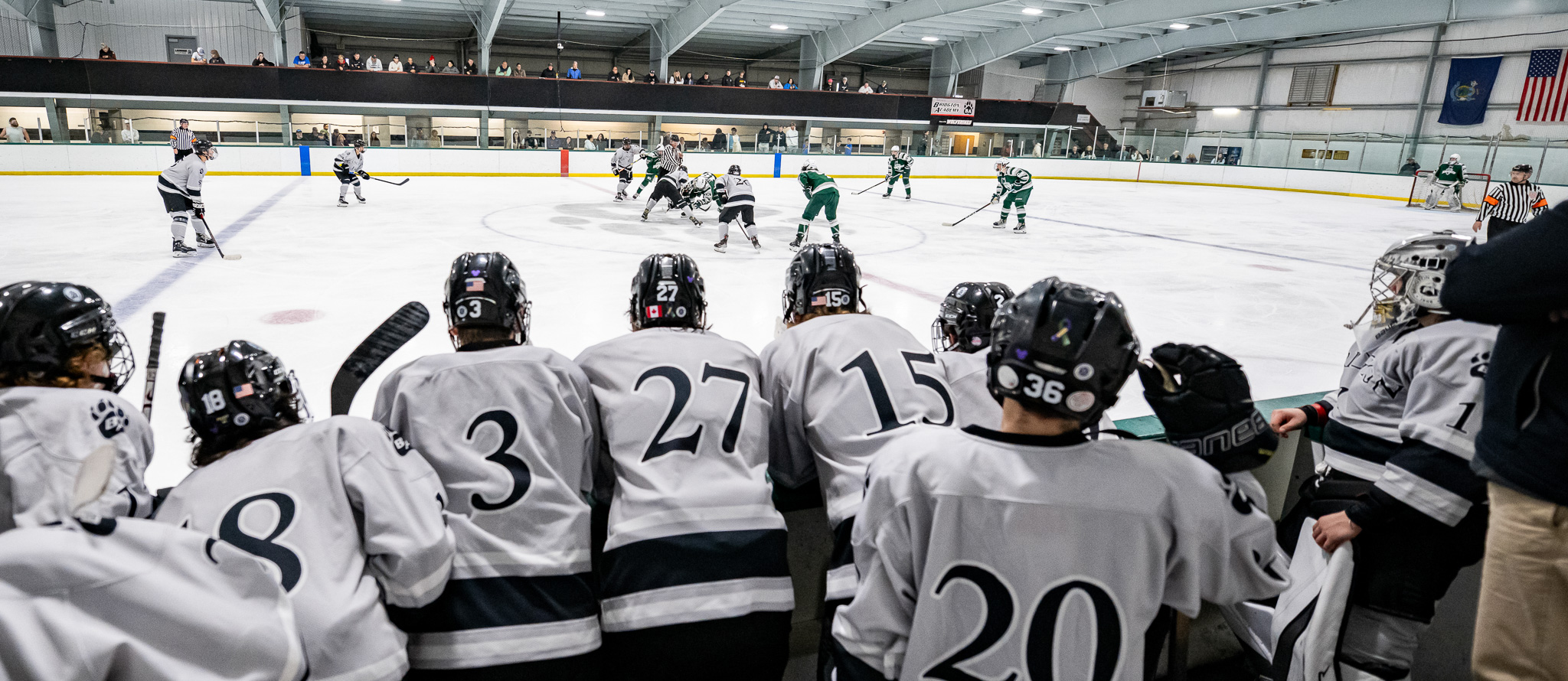Course Descriptions – History and Social Sciences
The history/social science curriculum at Bridgton Academy seeks to introduce students to the breadth and complexity of the human experience through engagement with both past and contemporary historical/social issues. Students will engage in rigorous historical inquiry and debate, while also working to develop student skills in the analysis and assessment of various forms of historical evidence and argument. Such exploration helps students to develop empathy, construct intellectual frameworks through which to view the world, and forge interdisciplinary links between events that have already occurred and those happening now. Finally, students will learn to select and more skillfully employ the most effective media through which to articulate their evolving thoughts and conclusions.
FIRST SEMESTER ELECTIVES:
AMERICA AT WAR (CAP)
CAP America at War looks to relay the impact of the First and Second World Wars on the development of the American nation. To better understand why America became involved in either war, the class will analyze the roots of American foreign policy and the state of affairs at the end of the 19th century. The course will spend a great deal of time using case studies to address the question of why the United States changed its foreign policy from one of isolation to one of intervention; in addition, we will look at the influence of those policies on our current foreign policy. This is a course equivalent of HIDI1204 at Plymouth State University and carries three (3) credit hours upon application for transfer credit.
THE AMERICAN CIVIL WAR
The course begins with the study of the causes of the Civil War, and moves through an exploration of the war, its battles, and the social climate of America during the War. As we celebrate, seemingly daily, the 150th anniversaries of a multitude of momentous events that occurred during this pivotal era, this class will look to put these events into a usable current context. The course format combines lectures and discussion. Reading is expected both in the text and in outside sources.
CURRENT POLITICAL ISSUES
Current Political Issues examines contemporary issues and events in the political arena. The focus of the course is to create a dialogue shaped around the hot button issues that seem to be so prevalent in the 21st century.
*EXPERIENCES IN 21st CENTURY LEADERSHIP
Great leaders are people who influence and empower others and are able to think strategically and critically to impact the world around them. This elective course provides students with an opportunity to learn about their strengths and put them to use in on & off campus community programs. We will assess our strengths & weaknesses, learn basic budgeting skills, visit large and small businesses, and explore various leadership philosophies all while developing our group dynamic skills (teamwork). Students in this class will:
Communicate: Students & faculty will discuss ways to build a cohesive program that blends ‘professional skills’ with existing aspects of the Bridgton Academy program. Collaborate: Students, faculty, and the larger community will work together to provide learning opportunities for the entire Bridgton Academy community that will open their minds to the realities of the professional world beyond academics. Create: Students will be exposed to experiential opportunities to see firsthand the direct correlation between academic and professional skills. Celebrate: This class will recognize the efforts of students, faculty and volunteers who are helpful to the program.
JOURNALISM AND MASS COMMUNICATION
Journalism is a field of changing skills and presentations. Audience, method, and content have all seen recent developments turn the industry on its head. However, the need for great storytelling has not changed. This course will explore different types of media while focusing on the content created here at Bridgton Academy. The content will be student produced and presented and will include video, podcast, social media, and traditional written work.
INTRODUCTION TO PSYCHOLOGY
This course will serve as an initial overview of the field of psychology and introduce students to many prevalent historical and current topics in the field. Through a combination of lecture and discussions, students will better understand the foundations of psychology and its application in our world today. Topics may include motivation, learning, memory, cognition, personality, and social behavior.
INTRODUCTION TO SOCIOLOGY
Introduction to Sociology examines the relationship between a person’s private life and the social world around him, specifically that personal, everyday experiences affect and are affected by the larger society in which we live. The true value of sociology lies in this unique ability to show the two-way connection between our personal thoughts, behaviors, and experiences to the groups, organizations, and cultures to which we belong. Further, the purpose of this introductory course is to make the familiar unfamiliar to help you critically examine the commonplace and the ordinary in your own life, and to see how sociology helps us to understand how our everyday lives are connected to society, perhaps in ways that you, as students, have not previously considered. It is impossible to understand what happens to us in our personal lives without taking into account broader social and historical phenomena. Thus we will examine significant past, present, and potential future events that can influence the way we live our everyday lives.
INTRODUCTION TO THEATRE
Introduction to Theatre explores the historical evolution of drama and theatre from Ancient Greece to modern times. Students will be able to answer the question, “What is theatre?” identify elements of a theatrical production, analyze scripts, and evaluate how theatre reflects society. Students also have the opportunity to view local theatres and productions, as well as perform scenes of their own!
WORLD CULTURES AND CIVILIZATIONS
World Cultures and Civilizations offers a regional survey of Earth’s geography and cultures, with particular focus given to the Middle East, Africa, and Asia. Topics covered include: country locations and their physical, political, economic, and cultural landscapes. Students will complete numerous hands-on assignments/projects ranging from “Creating Your Own Culture” to a “Country Case Study Project” (a format currently used by the U.S. military).

